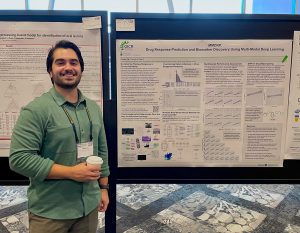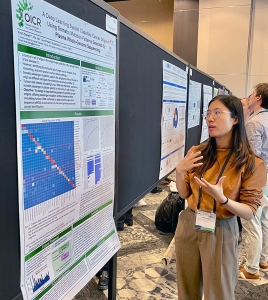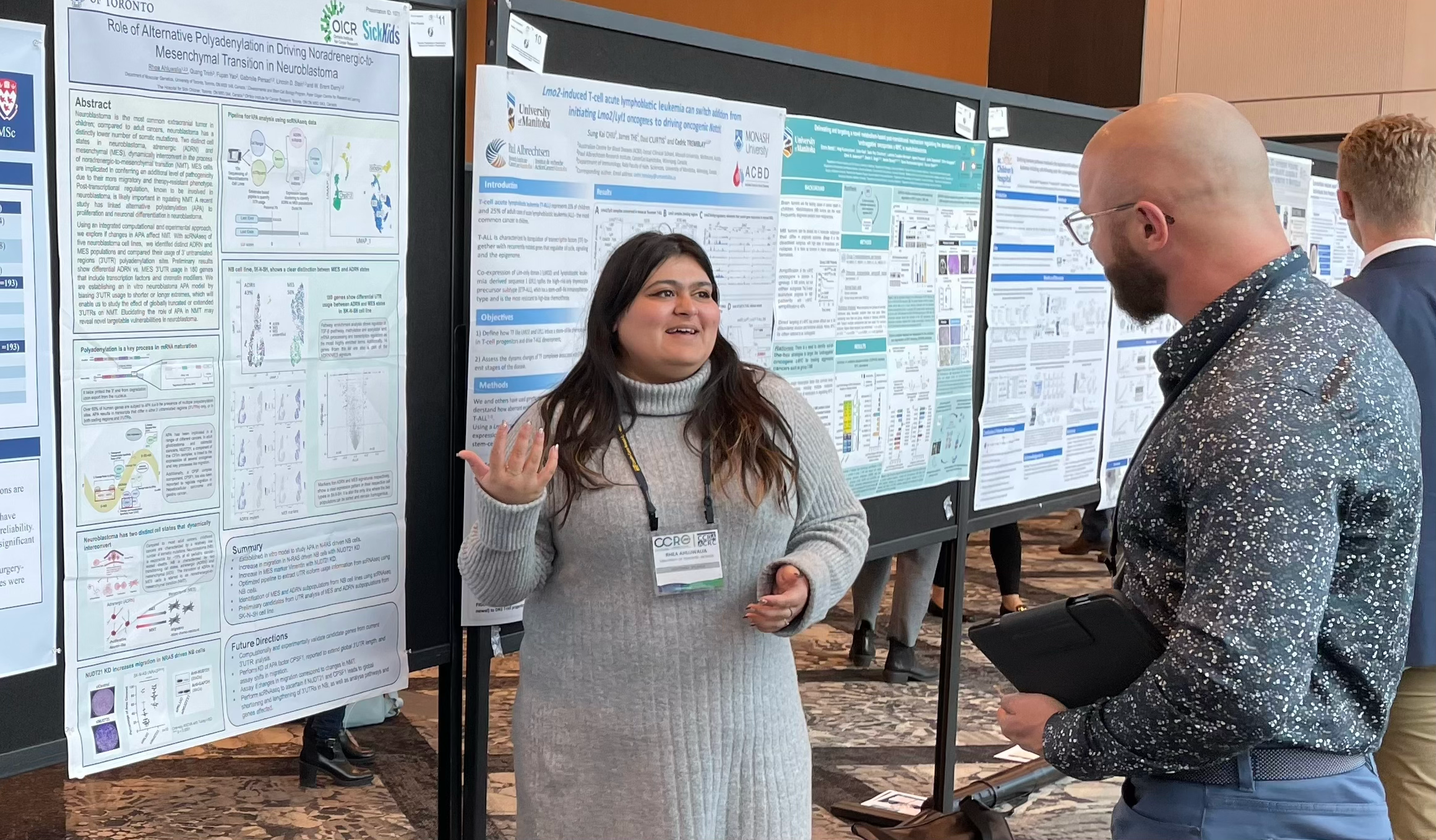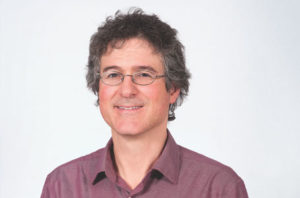Several OICR-based PhD candidates were able to share their research at the 2023 Canadian Cancer Research Conference.
Surrounded by cancer patients, clinicians and hundreds of the brightest minds in Canadian cancer research, Rhea Ahluwalia felt a part of something bigger.
Ahluwalia was one of several OICR-based scientists and PhD students to travel to the 2023 Canadian Cancer Research Conference (CCRC) in Halifax. She says the people she met at the conference and the diversity of their perspectives helped her see beyond her own research “bubble.”
“I got to see the bigger picture, and how all of our work is like different cogs that keep the machine of cancer research moving forward to help patients,” says Ahluwalia, a University of Toronto PhD student based in Dr. Lincoln Stein’s lab at OICR. “It was really inspiring and made my work feel even more worthwhile.”
Ahluwalia shared her research, which involves using computational methods to understand the biology of neuroblastoma, as part of the CCRC poster sessions. She also gave a presentation during of one the conference’s sessions on paediatric cancers.
She says discussing her PhD project with colleagues across Canada was helpful to her current research as well as her future ambitions.
“I met and spoke with people from many different fields,” she says. “As a student, that helps me see what I could be looking at as a career in the future.”
CCRC is a biennial conference run by the Canadian Cancer Research Alliance. This year’s conference was held in-person for the first time since before the COVID-19 pandemic, and OICR was well represented. Dr. Trevor Pugh gave one of the opening plenary presentations, while OICR researchers spoke at various sessions throughout the three-day conference.

But the experience was especially invigorating for PhD researchers.
PhD student Farzan Taj – Ahluwalia’s colleague in Stein Lab – says the conference helped him refresh his knowledge on topics like artificial intelligence and learn about the latest innovations in precision oncology.
“The conference was a unique opportunity to interact with other researchers and have stimulating conversations about my work,” says Taj, whose conference poster was about using deep learning tools to predict how cancer cells will respond to treatments.
Stein Lab’s Xindi Zhang says she was inspired hearing from the many cancer patients and family members who attended the conference.

“They ignited my passion to deepen my understanding of cancer research, helped me realize the significance of my role as a research trainee, and motivated me to contribute more to advancing the field,” she says.
Zhang also received some valuable insights from colleagues that may help shape the future of her research project, in which she uses computational methods to classify the site and histology of tumours.
“I think it’s really important to connect with others who share your passion, gain diverse perspectives and contribute to the collective knowledge,” Zhang says.


